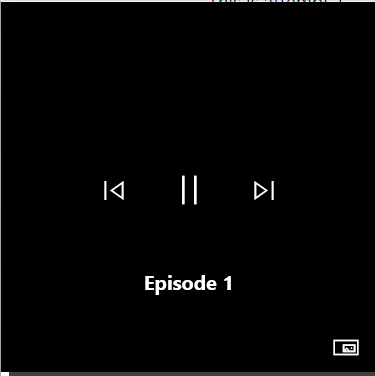My Engaged Project explores the connection between memory and storytelling. As a writer, I have always struggled to reconcile my memory with my imagination. While the two seem to be at odds, with memory as the objective truth and imagination as fluid creation, the distinction isn’t so black and white. Memory is imperfect for all of us. To find out why, I undertook scientific research on how memory is formed, stored, and recalled. I learned that the neurological process of creating and recalling memories has a lot in common with the process of storytelling. Imagination is actually a huge part of what makes our memories work the way they do. I used these discoveries to create a podcast called Miss Memory that showcases the relationship between memory and storytelling. In each episode, I explain a concept of memory science. I then bring on guests to share their personal stories and demonstrate these scientific concepts in practice. Miss Memory is intended for anyone who has a curiosity about the way their mind works, but it is especially geared toward storytellers who seek to grow their personal connection with their craft.
Sponsor: Todd Linsley (Sceenwriter, Film Producer, Speaker)
Student reflection excerpt:
As a humanities person, I always believed that the arts and the sciences had little in common. Through my research for this project, I was surprised to find that art and science can be incredibly similar and complement each other quite well. By not shying away from unfamiliar areas like neuroscience, I learned a lot about how my own brain works. This awareness has offered me clarity as a storyteller, but also clarity as a person. Additionally, the self-driven nature of the project pushed me to come up with creative solutions to the obstacles that I faced, and I am more confident than I was before as a result.
If I could go back, I would have built more structure for myself. As the semester went on, I got better at managing my time and holding myself accountable, but doing it from the start would have been very helpful. I also would have networked more and gotten others on board instead of trying to manage everything on my own. Lastly, I would have been kinder to myself when it came to assignments and performance. Not everything has to be perfect. Things can be both good and messy. What matters is making the most of the process.
Instructor reflection:
Bravo! Considering the obstacles you faced, it’s a bit of a miracle that you were able to accomplish as much as you did. You should feel good about that. One of your overall findings – that “memory is never equivalent to truth” – will stay with me long after the end of this semester.
In the future, I hope you will find ways to combine your inclination to do self-reflection with your ability to affect other people. Think back to the talk about suicide that you did in high school, and how much of an impact it had on the audience that day. Whether you are sharing your research and personal accounts of suicide, memory, or any other topic, I encourage you to share it. Don’t keep it to yourself. Engage!


